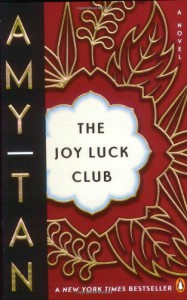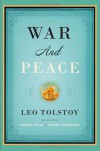
Latha is a servant girl, bought up alongside the daughter of a rich Sri Lankan family. Exposed daily to the luxuries that wealth can bring, she resents her status as a servant and disobeys in small ways - stealing a bar of rose-scented soap for her own use or making extra lime juice to drink. As she grows up, the differences between her and Thara become more apparent but their lives are so entwined that Latha has no option to break free. Caught in a complex mix of love and hate and against the back drop of a violent civil war, her small acts of disobedience gradually grow larger, with consequences for everyone. Told alongside Latha's story is that of Biso, a women fleeing an abusive husband with three small children in tow. She hopes to make it to the hills to be taken in by an Aunt, but the war is escalating and her journey is rife with danger.I really enjoyed A Disobedient Girl, mainly because of Latha herself. I've seen reviews complaining that Latha is an unlikable main character as she's not the most moral of people. And whilst that is true, I think this would have been a weaker book if Latha was simply written as a martyr. I liked that she was stubborn, proud and determined not to take her situation lying down; she wouldn't roll over and accept things the way they were. Throughout the book, Latha fought with whatever weapons she had available to her, even if that led to her doing questionable things, for example using sex to get back at her mistress early in the novel. I loved her spirit and resourcefulness and her constant hope that she could make a better life for herself. Even though she was in an impossible situation due to prejudice, she rarely gave in to bitterness. Freeman is also a political journalist and this is very apparent in the way she writes about the situation Latha faced;"There is was again: a proper servant. That was all they had expected of her. Despite her education, regardless of it, and her looks, she was supposed to be no more, no less. Servant. The thing that had concealed her intentions, her desires, her womanliness, her very soul."I also enjoyed the dual narrative aspect of the book. Chapters are alternated between Latha and Biso, and whilst it took me some time to get to grips with the fact that Latha's story unfolds over decades and Biso's only over a few days, the break in perspectives worked well. I was happy with the link between the two characters when it was revealed and also felt the ending was in keeping with plot. I also liked that the civil war stayed in the background of the story; too often it feels like authors from countries that have experienced war or political upheaval feel pressure to make this the center of their novels, like this is the only way people in the West will want to read their work. The war in A Disobedient Girl is there, but only ever as a backdrop to the story of Latha and Biso. I liked reading about other aspects of Sri Lankan life. In the same way, I liked that Freeman didn't feel the need to explain every new thing to the reader, she just immersed us in Sri Lankan culture and let us find our own way.The only criticism I would make of this book is that it was a bit over-long and slow at the start. It seemed to be a long while before events started to happen and the middle section could have been edited down. Other than that, it was a great read and I'll be keeping an eye out for any more books written by Freeman in the future.
 There's nothing like settling down to revisit an old favourite, is there? When I pick up Inkheart, I'm taken back to when I was at university, still living at home with my Mum and Dad. One Christmas, I received all three books that make up the Inkheart trilogy in my stocking and I devoured them all within a week. I literally did nothing apart from lay on the sofa and eat leftover Christmas treats with my nose stuck in these books until I had finished all three. Even though I'm now twenty-six, married and definitely not living with my parents anymore, picking up these books brings back all the magic of the first time I read them.Twelve-year-old Meggie lives with her bookbinder father Mo after the disappearance of her mother in mysterious circumstances when she was only three. They are visiting a relative, book collector Eleanor when a strange man called Dustfinger arrives, claiming that Mo read him out of a book called Inkheart. What follows is a good old-fashioned adventure as Meggie and Mo race to stop the villain of Inkheart, Capricon, from destroying all the remaining copies and wreaking a terrible vengeance on his enemies. Along the way, they are assisted by Eleanor, the author of Inkheart, Fenoglio, and Farid, a young boy read out of the pages of A Thousand and One Nights. Here's the thing: I know Inkheart isn't exactly the finest literature and I know that the plot is a little silly at times (the Shadow being a case in point), but none of that stops me from loving the book so much that even thinking about it makes me smile. Who hasn't read a book and wanted the characters to come out of the book? I know I have and I love that the entire story revolves around the love of books and in particular, the love of all the classics I loved so much as a child (Peter Pan, Arabian Nights etc). In fact, the thing I enjoy most about Inkheart is the tone; it feels like the old-fashioned books I devoured when I was young. There's a good dose of adventure, a straightforward good vs evil plot and a hint of magic. Picking it up feels like picking up an Enid Blyton novel,Treasure Island or Peter Pan. Although Meggie is in for a lot of suffering, it's due to the danger she faces and the world of the book is like a lovely bubble I like to sink into every now and again.This isn't really a proper review as I'm not going to be critical. I understand this book isn't for everyone but I absolutely love it and I'm already looking forward to making time for a reread of Inkspell and Inkdeath over the next few weeks. For me, Inkheart is escapist adventure at its best.
There's nothing like settling down to revisit an old favourite, is there? When I pick up Inkheart, I'm taken back to when I was at university, still living at home with my Mum and Dad. One Christmas, I received all three books that make up the Inkheart trilogy in my stocking and I devoured them all within a week. I literally did nothing apart from lay on the sofa and eat leftover Christmas treats with my nose stuck in these books until I had finished all three. Even though I'm now twenty-six, married and definitely not living with my parents anymore, picking up these books brings back all the magic of the first time I read them.Twelve-year-old Meggie lives with her bookbinder father Mo after the disappearance of her mother in mysterious circumstances when she was only three. They are visiting a relative, book collector Eleanor when a strange man called Dustfinger arrives, claiming that Mo read him out of a book called Inkheart. What follows is a good old-fashioned adventure as Meggie and Mo race to stop the villain of Inkheart, Capricon, from destroying all the remaining copies and wreaking a terrible vengeance on his enemies. Along the way, they are assisted by Eleanor, the author of Inkheart, Fenoglio, and Farid, a young boy read out of the pages of A Thousand and One Nights. Here's the thing: I know Inkheart isn't exactly the finest literature and I know that the plot is a little silly at times (the Shadow being a case in point), but none of that stops me from loving the book so much that even thinking about it makes me smile. Who hasn't read a book and wanted the characters to come out of the book? I know I have and I love that the entire story revolves around the love of books and in particular, the love of all the classics I loved so much as a child (Peter Pan, Arabian Nights etc). In fact, the thing I enjoy most about Inkheart is the tone; it feels like the old-fashioned books I devoured when I was young. There's a good dose of adventure, a straightforward good vs evil plot and a hint of magic. Picking it up feels like picking up an Enid Blyton novel,Treasure Island or Peter Pan. Although Meggie is in for a lot of suffering, it's due to the danger she faces and the world of the book is like a lovely bubble I like to sink into every now and again.This isn't really a proper review as I'm not going to be critical. I understand this book isn't for everyone but I absolutely love it and I'm already looking forward to making time for a reread of Inkspell and Inkdeath over the next few weeks. For me, Inkheart is escapist adventure at its best.




















